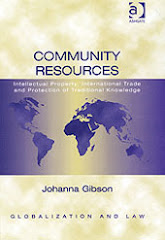The de facto moratorium ended in 2004 and so this was not ultimately an issue in the final panel decision. However, with ongoing national bans, the original complainants (United States, Canada and Argentina) may request WTO sanctions for noncompliance.

France is one country in the European Communities that is considering a long term ban following the temporary measure put in place by President Sarkozy last October, which is due to expire next month. French activist and one of the 12 candidates for the French Presidency 2007, Jose Bove (pictured at left), was joined by 15 people on a hunger strike last year to campaign for the year long ban.
Other countries, including Germany, advocate a temporary halt to all authorisations until an effective mechanism is in place for such approvals. Minister of Agriculture, Horst Seehofer, has described the procedure as "questionable" for its failure to take adequate account of public opinion and concerns.
And the European Commission's environment minister, Stavros Dimas (pictured at right at the Climate Change Conference, Bali, December 2007), in plans to reject applications from Syngenta and Pioneer Hi-Bred International to grow GM maize,
 demonstrates the emphasis in Europe on the ability to exercise the fundamental precautionary principle, presuming the environmental will be damaged without adequate evidence to the contrary (rather than placing the burden on the decision not to introduce). Dimas's stance has attracted criticism as a political rather than a scientific decision. However, perhaps it is better science to demand the evidence that the environment will not be harmed (that is, that markets can be protected through containment), rather than trying to delimit a perhaps less well-defined risk that the environment will be harmed (where markets and consumer choice are perhaps more vulnerable). Or is it simply misunderstanding the consumer stakes to expect the possibility of the separation of science and politics?
demonstrates the emphasis in Europe on the ability to exercise the fundamental precautionary principle, presuming the environmental will be damaged without adequate evidence to the contrary (rather than placing the burden on the decision not to introduce). Dimas's stance has attracted criticism as a political rather than a scientific decision. However, perhaps it is better science to demand the evidence that the environment will not be harmed (that is, that markets can be protected through containment), rather than trying to delimit a perhaps less well-defined risk that the environment will be harmed (where markets and consumer choice are perhaps more vulnerable). Or is it simply misunderstanding the consumer stakes to expect the possibility of the separation of science and politics?Arguably such criticism should take account of not only the market in GM, but also the market in organic foods and the potential costs to organic farmers if contamination should occur. The question is whether certain standards in handling and the mechanisms and procedures for approval, are sufficient to protect these markets such that they may co-exist in a genuine way both for consumers and for farmers.



No comments:
Post a Comment